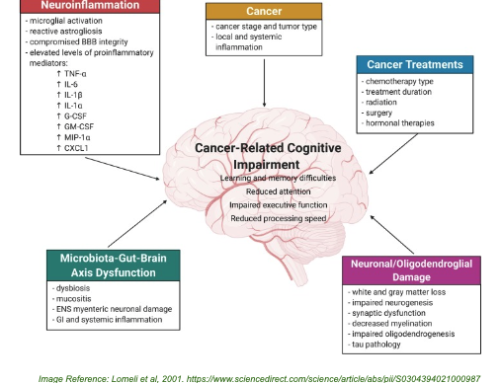The growing demand for health care, the increasing complexity of treatments and the load that places on the Australian health system is driving a fresh take on how we view the role of care coordinators.
Add in an escalating cost structure and a shrinking workforce in both the public and private health care sector and you have major challenges for public health in the delivery of systemic health care.
A Critical Role
In the context of Australia’s mature health system, effective coordination of care across different health services, care teams and clinicians is pivotal to ensuring patients received high‐quality healthcare.
In surveys, patients regularly nominate coordination of care to be a critical issue and an important influence on their overall care experience. Similarly, care coordinators have been identified as an essential aspect of patient‐centric care and are a key determinant of national health care safety and quality standards for health care services.
Introducing The Care Coordinator
A care coordinator is a skilled health professional trained to assist patients to manage their care program. Often they are drawn from the ranks of registered nurses (RNs). They may work in a health service organisation, a doctor’s office, a hospital or for an insurance company.
If a patient has a chronic condition, such as diabetes, that puts them at risk of experiencing significant health problems, they may find themselves liaising with a care coordinator.
This care coordinator role assists with:
- Collaborate with clients to identify their goals and develop their plan of care
- Acting as the central point of contact between services
- They ensure continuity of care and a care plan that is reflective of the client’s desired outcomes and goals
- Connect patients and carers with health care providers and ensure each provider is aware of their patient’s care strategy
- Educate the patient about their condition
- Ensure patients have access to appropriate services
- Answer patient and family questions and source additional information for them
- Navigating patients and carers through the health system
- Connecting patients to local and online resources to assist with community engagement and self-management
Coordinating Care
Coordinating care is a complex mission that demands effective action on several levels and engaging with a broad range of health professionals. Dedicated nurse navigators, case managers, nurse coordinators and care coordinator roles have been adopted in many countries as a strategy for improving the effective coordination of patient care.
In the Australian context, the concept of a care coordinator is the most frequently encountered term used to describe professionals engaged in dedicated care coordination roles. The use of lay navigators has historically received insignificant focus in Australia right up to the present day.
It is also important to distinguish between a care coordinator role focused on coordinating a patient’s clinical care and other health care coordinator roles primarily oriented around service delivery from an administrative perspective.
Case Study: Cancer Care Coordinators
One example of care coordinators in the Australian health system is the role played by Cancer Care Coordinators. Typically, Cancer Care Coordinators are RNs, Clinical Nurse Consultants or Clinical Nurse Specialists with advanced experience in oncology.
Watch this video from Cancer Australia on the role of a Cancer Care Coordinator: Watch here
The Cancer Care Coordinators enjoy a depth and breadth of knowledgeable about the various forms of cancer, the resources available to treat it and the expected outcomes.
From the time a patient is diagnosed with cancer, the role of the Cancer Care Coordinator is to be available to act as a specialised member of the patient’s medical allied health care team, providing personalised cancer care for the patient and their family.
Patients are usually introduced to their Cancer Care Coordinator as part of an initial assessment. They are continuously available to answer questions and to discuss any problems the patient wishes to discuss. Often care coordination services can be provided remotely.
What Do Care Coordinators Do?
Care coordinators liaise with patients and their families to assist with a variety of needs and treatment options available through the Australian health system. This can range from walking through a proposed treatment plan and outlining care strategies, to finding doctors and health professionals, connecting with local services, attending case conferences, interfacing with the patient’s health care team, helping caregivers to understand a treatment regime and assisting with clinical documentation.
Community care coordinators typically help arrange health screenings, resolve barriers to accessing public and private and allied health networks, and source follow-up health education. Some care coordinators work with seniors, others exclusively with cancer patients or patients with chronic long-term conditions.
Evidence to date suggests interventions by Australia’s care coordinators reduce the likelihood of hospital admissions, reduced the incidence of emergency department visits, and reduce delays prior to and during treatment and that their patients are more likely to follow‐up with a consultation with their physician after receiving an abnormal screening result.
Specific roles within Valion Health
The Valion Health nursing care coordinator team roles encompass a broad range of tasks and responsibilities, with best practice care key to successful delivery. Some of these tasks include:
- Logistical support such as scheduling appointments, assessments, discharges
- Education around national oncology guidelines for symptom management.
- Education about their cancer, their surgery, their recovery or their treatments.
- Troubleshooting interventions for symptom management and implementation of provider recommendations
- Referrals to support groups and other NGO (Mummy’s Wish, LGFB)
- Emotional support to client and carer
- Helping clients prepare for upcoming appointments – developing a list of questions etc.
- Liaising with primary care team to relay areas of concerns or expedite referrals – MHCP, GP Care Plan, Rehab referrals
- Referral to local public services such as CRCC
- Referral and guidance around ACAT, NDIS, Respite and Advanced Care Planning
- Escalation of care as necessary to local hospitals, primary care teams
Final Observation
Patients are increasingly encountering care coordinators occasionally known as patient advocates. This comparatively fresh approach to health care is emerging as a familiar and welcome face in more and more communities and hospitals as they help patients navigate their way through an increasingly complex Australian healthcare system.
To connect with our experienced team of care coordinators, register for an individual session here: https://valionhealth.com.au/contact/



